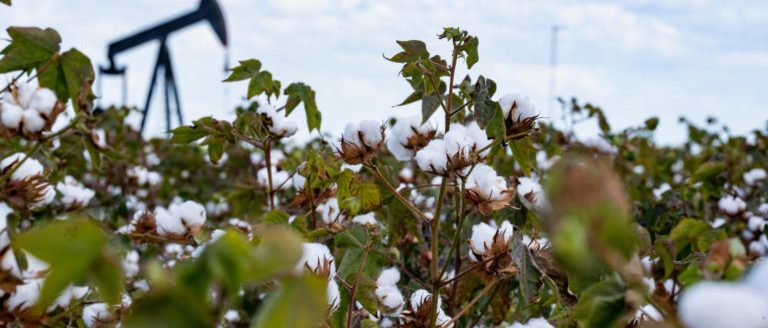Despite tropical weather forcing the 55th Stiles Farm Field Day indoors to nearby Taylor, there was plenty of discussion on farm issues and new technology that drew more than 150 Blacklands-region producers.
Joe Outlaw, co-director of the Agricultural and Food Policy Center at Texas A&M University and Texas A&M AgriLife Extension Service economist in College Station, told farmers despite a low-price commodity environment there will be a farm bill—either extending the current program or passing of new legislation.
“Either way, you are going to get about the same strong support whether you get a new farm bill or they extend the current one,” Outlaw said. “If they don’t pass a bill, they will extend the current one.”
With the Senate Agriculture Committee recently passing its new version of the farm bill and the House expecting a vote this week, time continues to march on towards the expiration of the current farm bill Sept. 30. Outlaw said he’s “very upbeat” about current farm bill negotiations as mid-cycle elections draw closer in November. He told attendees he knew he wasn’t delivering the brightest of news amid a backdrop of historically low commodity prices and tenuous trade relations with China.
“Unfortunately, we can’t do anything about current commodity prices or trade,” he said. “If we lose our China trade market, will the government do something about it? Absolutely.”
John Tomecek, AgriLife Extension wildlife specialist at the Stiles Farm, discussed tips on successful feral hog trapping. Blackland farmers as well as farmers across the state have sustained millions of dollars in damaged crops and rangeland.
“Last year, we saw $125 million worth of damage to small grains crops in Texas,” he said. “To put our Texas feral hog population into context, we have 5.3 million wild hogs. Compare that to 4 million whitetail deer.”
Tomecek said Texas’ feral hog population is growing at such an explosive rate that Texans would have to kill two-thirds of the current population to just keep the current population numbers where they are.
“People ask ‘Is the current situation under control?’ I say no,” he said.
Trapping can be effective if done properly. Tomecek provided examples of box traps and teardrop-shaped traps designed to catch large numbers of hogs, including the sounder or female hog. He said it’s critical to capture the sounder hog since it can reproduce up to 50 pigs over a two-year span.
Gaylon Morgan, AgriLife Extension state cotton specialist from College Station, gave an update on new cotton innovations. He said ginners are having problems with getting plastic in their ginned cotton. Additionally, he told farmers to make sure they line up their cotton bales and not place them on standing stalks since they are prone to rip holes in the plastic protective wrap.
During the noon program, Macie Scarborough of Bishop received a Stiles Farm Foundation scholarship. Scarborough has been a Nueces County 4-H member for 10 years and will be attending Texas A&M studying agribusiness. Emily Murphy of Cleburne also received a Stiles Farm scholarship. She is a Bosque County 4-H member and will be attending Tarleton State University majoring in the agricultural industries program.
Bob Avant, director of corporate relations for Texas A&M AgriLife Research and president of the Williamson County Farm Bureau, presented Terry Poldrack the Producer of the Year Award and Larry Sladek the Agribusiness Award.
The annual field day is conducted by the AgriLife Extension in cooperation with AgriLife Research and the College of Agriculture and Life Sciences at Texas A&M.



